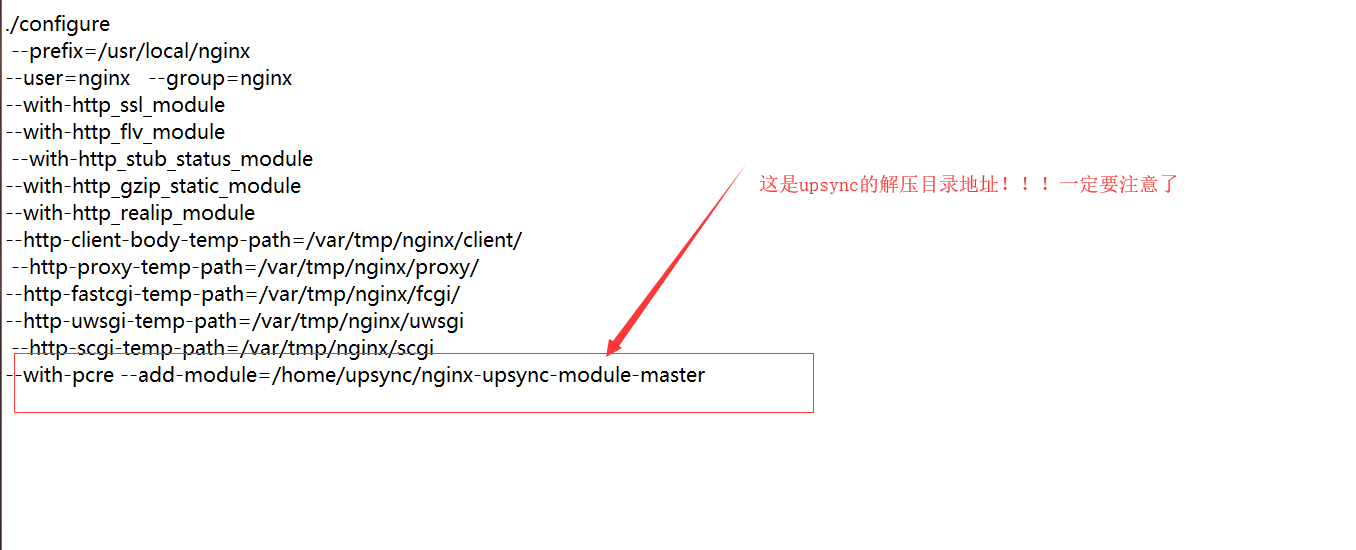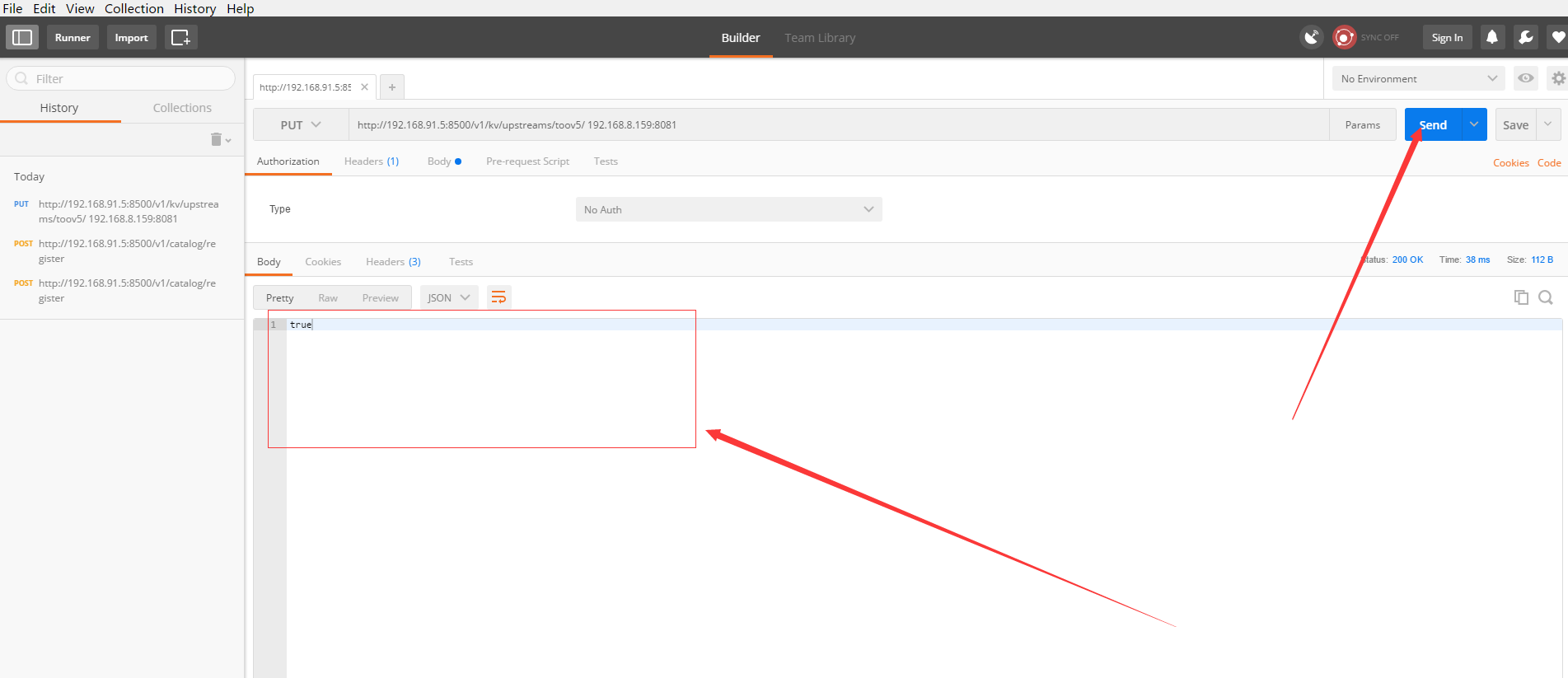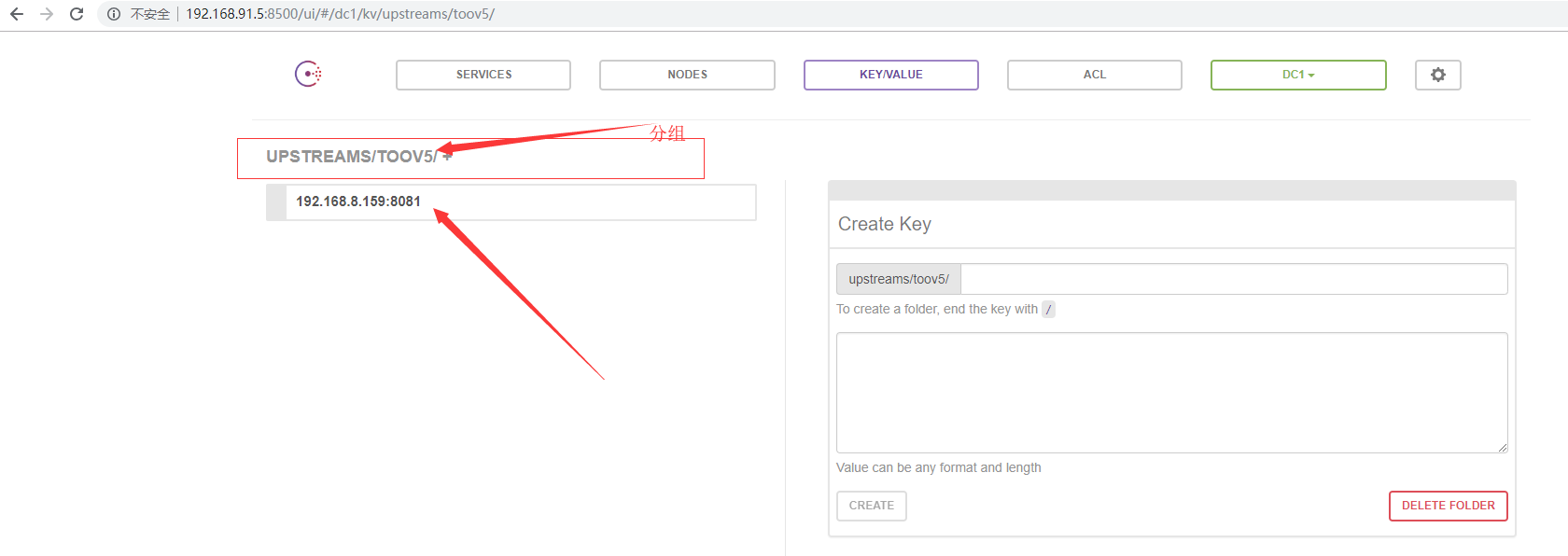首先 安装好 Consul upsync
然后:
1、配置安装Nginx
需要做配置,包括分组之类的,创建目录,有些插件是需要存放在这些目录的
groupadd nginx
useradd -g nginx -s /sbin/nologin nginx
mkdir -p /var/tmp/nginx/client/
mkdir -p /usr/local/nginx
2、编译Nginx
cd /home/nginx/nginx-1.9.0
./configure --prefix=/usr/local/nginx --user=nginx --group=nginx --with-http_ssl_module --with-http_flv_module --with-http_stub_status_module --with-http_gzip_static_module --with-http_realip_module --http-client-body-temp-path=/var/tmp/nginx/client/ --http-proxy-temp-path=/var/tmp/nginx/proxy/ --http-fastcgi-temp-path=/var/tmp/nginx/fcgi/ --http-uwsgi-temp-path=/var/tmp/nginx/uwsgi --http-scgi-temp-path=/var/tmp/nginx/scgi --with-pcre --add-module=/home/upsync/nginx-upsync-module-master
解读:

注意,如果出现这个错误:

解决办法
yum -y install openssl openssl-devel
最后: make && make install
下面开始配置Nginx了
Upstream(上游服务器) 动态配置
##动态去consul 获取注册的真实反向代理地址
upstream toov5{
#自己虚拟出的 作为监听用的 端口号 固定死的
server 127.0.0.1:11111;
#连接consul server动态获取upstream配置负载均衡信息 间隔0.5秒读取一次 使用192.168.212.134:8500 原生的 他自己虚拟出来的 不要乱改! 读取的是toov5 这个分组的!!!
upsync 192.168.91.5:8500/v1/kv/upstreams/toov5 upsync_timeout=6m upsync_interval=500ms upsync_type=consul strong_dependency=off;
#动态拉取consulServer相关负载均衡配置信息持久化到硬盘上
upsync_dump_path /usr/local/nginx/conf/servers/servers_test.conf;
}
server {
listen 80;
server_name localhost;
location / {
#配置反向代理
proxy_pass http://toov5;
index index.html index.htm;
}
}
解读:
upsync指令指定从consul哪个路径拉取上游服务器配置;upsync_timeout配置从consul拉取上游服务器配置的超时时间;upsync_interval配置从consul拉取上游服务器配置的间隔时间;upsync_type指定使用consul配置服务器;strong_dependency配置nginx在启动时是否强制依赖配置服务器,如果配置为on,则拉取配置失败时nginx启动同样失败。upsync_dump_path指定从consul拉取的上游服务器后持久化到的位置,这样即使consul服务器出问题了,本地还有一个备份。
注意:替换 consul 注册中心地址
创建upsync_dump_path
mkdir /usr/local/nginx/conf/servers/
upsync_dump_path指定从consul拉取的上游服务器后持久化到的位置,这样即使consul服务器出问题了,本地还有一个备份。
配置时候的状态:
#user nobody;
worker_processes 1;
#error_log logs/error.log;
#error_log logs/error.log notice;
#error_log logs/error.log info;
#pid logs/nginx.pid;
events {
worker_connections 1024;
}
http {
include mime.types;
default_type application/octet-stream;
#log_format main '$remote_addr - $remote_user [$time_local] "$request" '
# '$status $body_bytes_sent "$http_referer" '
# '"$http_user_agent" "$http_x_forwarded_for"';
#access_log logs/access.log main;
sendfile on;
#tcp_nopush on;
#keepalive_timeout 0;
keepalive_timeout 65;
#gzip on;
##动态去consul 获取注册的真实反向代理地址
upstream toov5{
#自己虚拟出的 作为监听用的 端口号 固定死的
server 127.0.0.1:11111;
#连接consul server动态获取upstream配置负载均衡信息 间隔0.5秒读取一次 使用192.168.212.134:8500 原生的 他自己虚拟出来的 不要乱改!
upsync 192.168.212.134:8500/v1/kv/upstreams/toov5 upsync_timeout=6m upsync_interval=500ms upsync_type=consul strong_dependency=off;
#动态拉取consulServer相关负载均衡配置信息持久化到硬盘上
upsync_dump_path /usr/local/nginx/conf/servers/servers_test.conf;
}
server {
listen 80;
server_name localhost;
location / {
#配置反向代理
proxy_pass http://toov5;
index index.html index.htm;
}
}
# server {
# listen 80;
# server_name localhost;
# #charset koi8-r;
# #access_log logs/host.access.log main;
# location / {
# root html;
# index index.html index.htm;
# }
#
#error_page 404 /404.html;
# redirect server error pages to the static page /50x.html
#
# error_page 500 502 503 504 /50x.html;
# location = /50x.html {
# root html;
# }
#
# }
}
然后启动consul : ./consul agent -dev -ui -node=consul-dev -client=192.168.91.5
启动 Nginx ./nginx
本地启动三台:8080 8081 8082

然后开始做动态负载均衡了!添加nginx Upstream服务开始:
1.使用linux命令方式发送put请求 添加这个 192.168.8.159:8081 到上游服务
curl -X PUT http://192.168.91.5:8500/v1/kv/upstreams/toov5/ 192.168.8.159:8081

然后图形化界面:

同时 他实现了 故障转移 负载均衡!